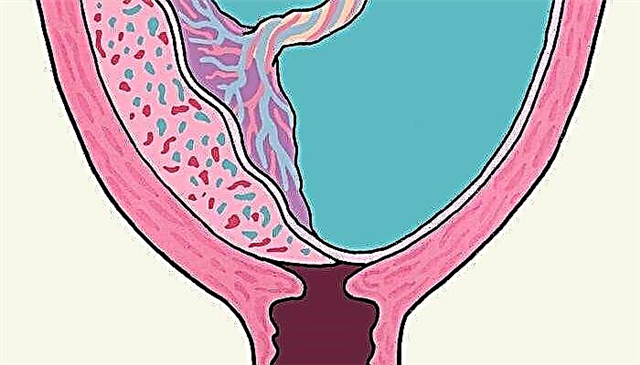You have a baby. You have been waiting for him for a long time, imagining what he will be, and how you will grow and educate him. But when it finally happens, you are suddenly faced with many unforeseen problems. One of them, which never ceases to excite every young mother and all grandmothers in the world, is the rate of weight gain in newborns.

"Starting point" of the weight of the newborn
Each newborn baby is examined by a pediatrician, and at the first examination, he is immediately weighed and measured for height (see table Newborn Height). Then the child, together with his mother, will remain in the hospital for another 4-6 days to be monitored by doctors. On the day of discharge, he is weighed again. It is from these 2 numbers - weight in the first minutes after birth and weight on the day of discharge from the hospital - that the subsequent weight gain of the newborn begins and largely depends. So:
Baby weight at birth
All babies are born with different heights and weights, and the normal weight of a healthy baby at birth is considered to be in the range from 2,700 kg to 3,700 kg. It should be noted that the initial weight of a child depends on a number of different factors:
- Baby health.
- Heredity. Tall mothers with large weight are more likely to have large children, and vice versa: thin short women give birth to small babies.
- Paul. As a rule, boys are always born larger (heavier) than girls.
- Nutrition for the mother during pregnancy. With a high-calorie diet of a pregnant woman, the fetus usually gains a lot.
- The physical and psychological state of a woman. If a mother is unhealthy or has lived under stress for a long time during pregnancy, then this may well affect the health and, accordingly, the weight of her newborn child.
- The presence of bad habits in a pregnant woman. Of course, a smoker, and even more so one who drinks and uses drugs, may have sick children with insufficient weight.
Discharge weight
In the first few days of life, children lose a little weight. Weight loss is due to several reasons:
- Loss of fluid. When the baby is born, it begins to breathe, and a large amount of fluid escapes through its respiratory system and skin.
- Power installation. In the first days, the baby drinks colostrum, and in small portions, until he gets better nutrition, and the mother begins to receive milk.
- Adapting to living conditions. We know very well that the young seedlings we transplanted from the greenhouse to the garden do not start growing immediately. So a child, having radically changed the environment at birth, does not immediately get used to living in it.
Thus, discharge weight differs by about 6-10% from birth weight. And it is from this, the second, numbers that it is customary to count the rates of weight gain for each newborn.
Weight gain rates
You and your baby were discharged from the hospital and you were at home. The kid learned to eat, his digestion and heat and air exchange with the environment are gradually improving, and he begins to grow rapidly.
[sc: rsa]
Video: baby weight
Reasons for weight gain or lack of it
Weight gain depends on the following reasons:
- Health. If the baby is sick, he eats worse.
- Appetite.
- Type of feeding: breast or artificial. With bottle-feeding, babies tend to gain weight faster.
- The quality and quantity of food (mother's milk).
- Child's mobility. A person involved in sports is usually fit. A similarly mobile child is somewhat thinner than a sluggard.
- Regime of the day and meals. When feeding "by the hour" the weight grows more slowly than "on demand".
- Age. In the first months, children grow faster; by the year, growth slows down.
Be that as it may, specialist scientists have established some average conditional indicators of the norms of weight gain in newborn children.
Rates of gains: table of child's weight up to one year
Average statistics show that the usual weight gain in the first year of life is as follows:
- During the first month, when your baby is still very young, it is considered normal to gain weight by 90-150 grams per week.
- From the second, third and until the end of the fourth month, the baby should already be gaining 140-200 grams per week.
- From the fifth month to six months, weight is added again by 100-160 grams per week, and by six months, your baby's weight should approximately double.
- Further, growth begins to slow down a little, and by one year, the child weighs about 3 times more than it was at birth.

Deviation from the norm: is it worth worrying
Very often there are deviations from the above average indicators. This is too little or too much weight gain, which is also bad, since too fat guys become inactive and develop more slowly. In addition to possible diseases of the baby, the reasons for such deviations may be as follows:
- Each person is individual in his physiology, and everyone grows in different ways: someone is a little faster, and the other is a little slower.
- The rate of weight gain for all larger newborns is usually higher. So, if for a baby whose initial height was 52 cm, an increase of 170 grams is considered normal, then for a child with an initial height of 58 cm it is already about 210 grams.
- It often happens that boys gain weight faster than girls.
- With artificial nutrition, babies get fat faster.
And there are many other reasons, which are different in each case, and it is possible to identify them only with an individual approach. And only after identifying these reasons is it possible to give an accurate answer whether parents should be worried about this and whether to take urgent measures. In any case, the rates of weight gain in newborns are averaged and approximate, and you should not take them for an ideal. And if in doubt about the growth of the child, it is best to get tested and consult with specialists. If you and your baby are healthy, then perhaps for the appearance of rounded folds on his body, it is enough to start feeding him on demand, applying it to the breast more often, and this will solve the problem.
Related >>>
- Why is the child gaining weight poorly?
- Complementary feeding for infants



